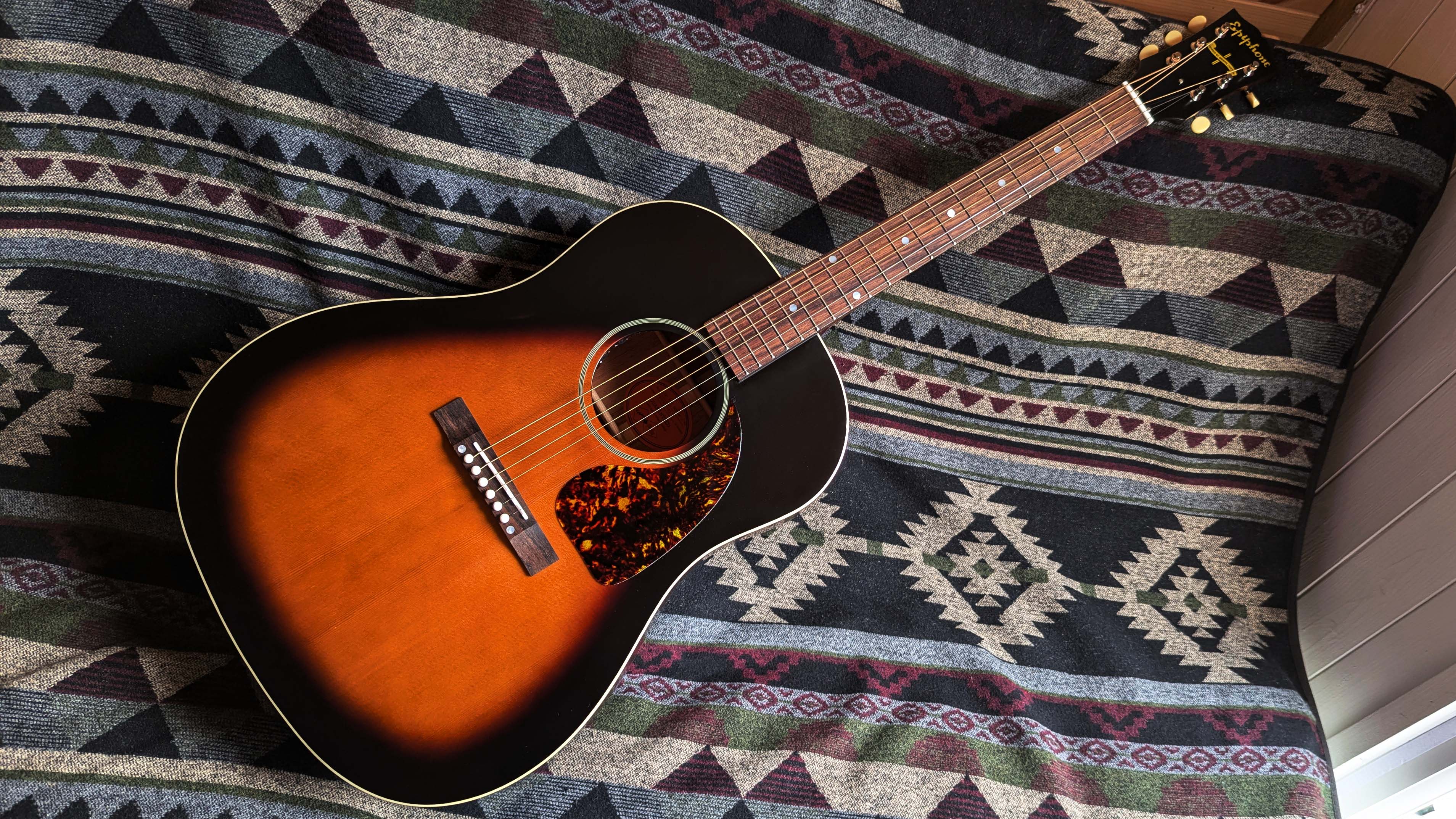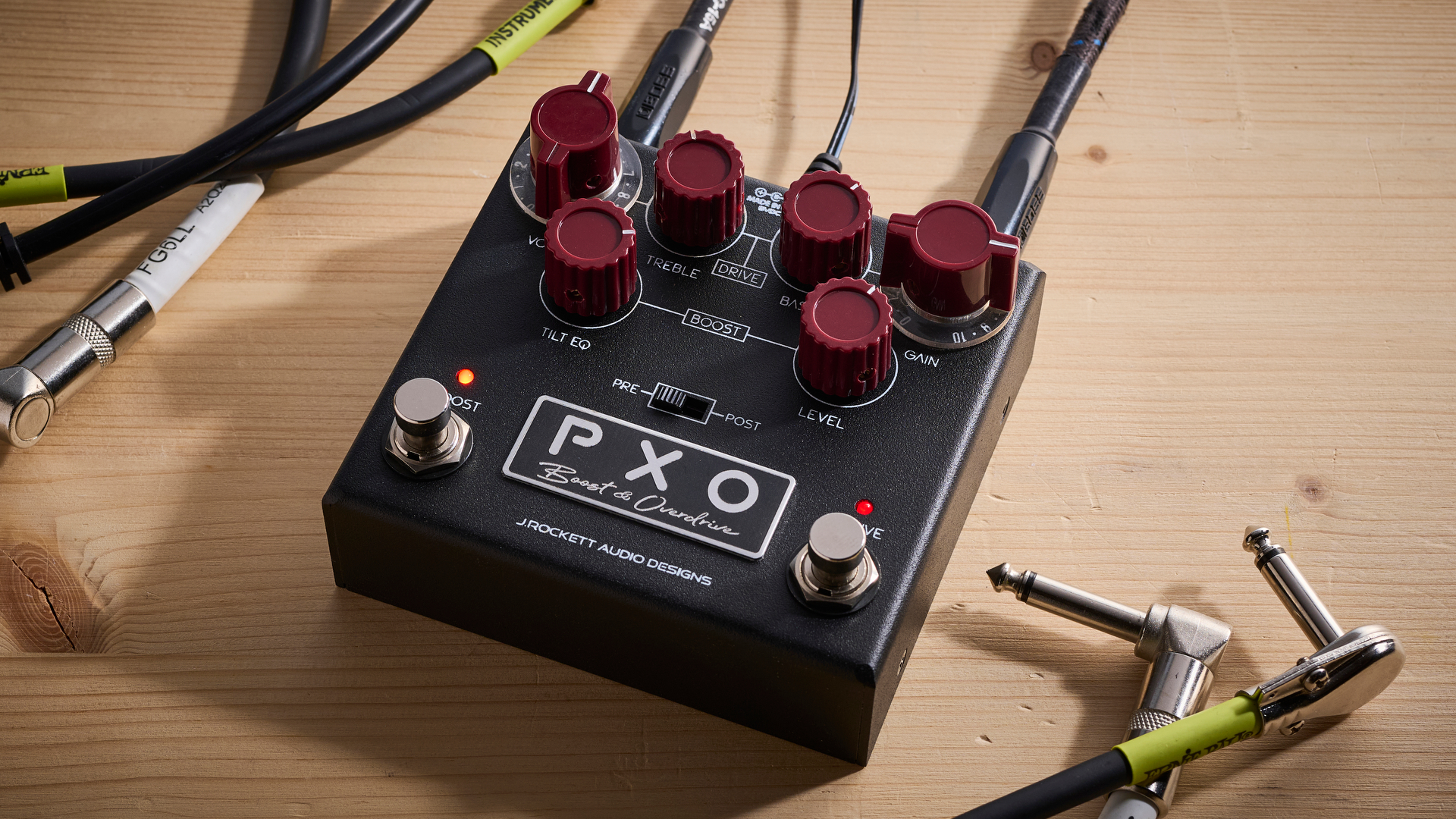MusicRadar Verdict
An electro-acoustic that sits between existing Epiphone takes on the iconic J-45 and Gibson’s Standard and Custom Shop models, this could be a Goldilocks guitar for some buyers priced out of the latter.
Pros
- +
Looks classy and sounds classic.
- +
A comfortable player.
- +
Baggs VTC system impresses.
Cons
- -
Slightly lacking in bass resonance.
- -
Our test guitar had a cosmetic flaw.
MusicRadar's got your back
Epiphone 1942 Banner J-45 : What is it?
The J-45 is one of the iconic acoustic guitars; the round-shouldered jumbo’s place in history immortalised in the hands of Dylan, Donovan, Elvis (Presley and Costello), Lucinda Williams, Springsteen Buddy Holly and nearly every big songwriting name who has ever been in a big studio at one time or another. But for most of us it’s an unobtainable object, like fellow dreadnought hall of famer the Martin D-28. The price of a proper Gibson J-45 puts it in the ‘when I win some money’ category. But what if…
Epiphone blurred the lines?
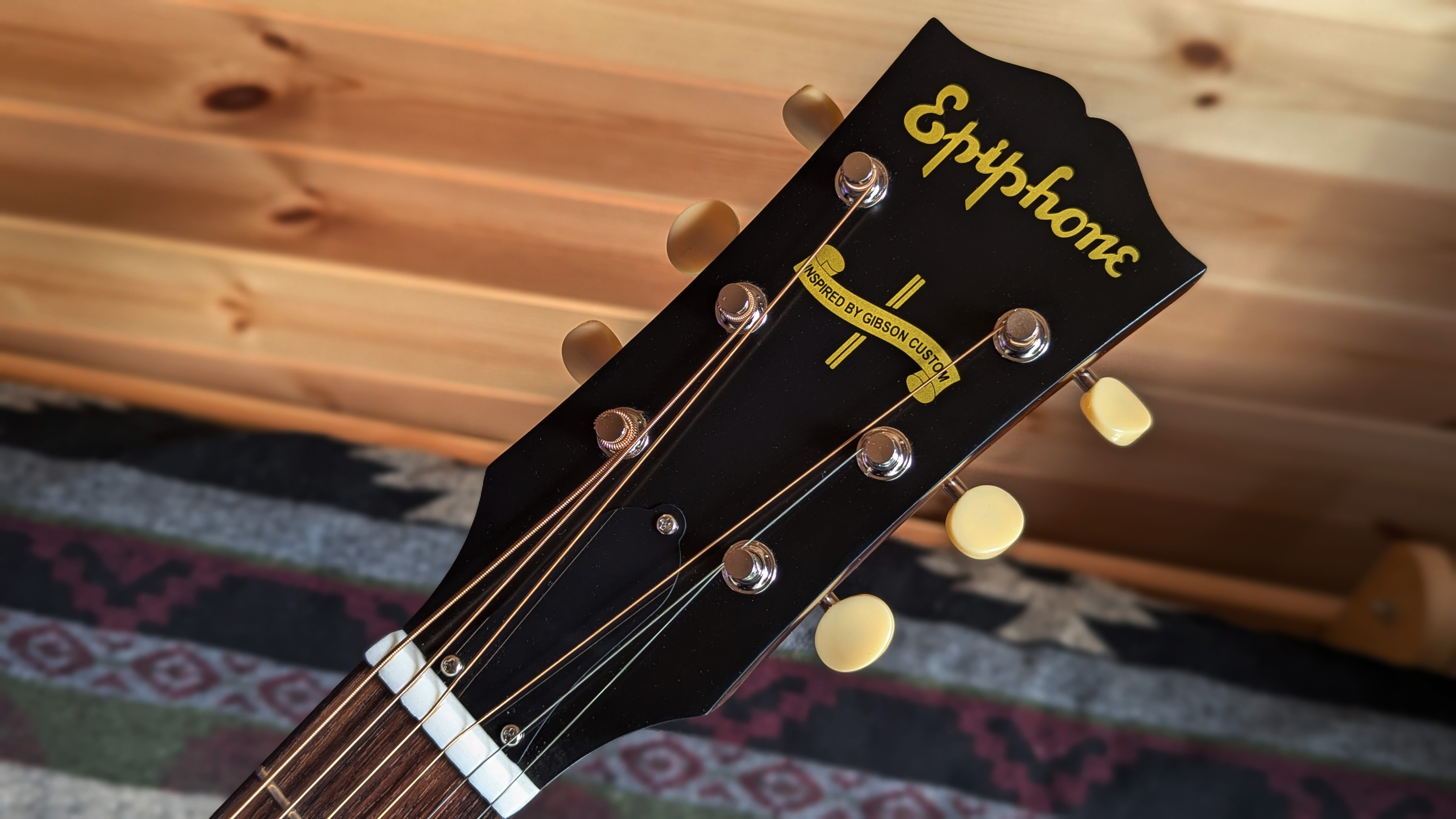
The Inspired By Gibson Custom Shop concept has raised tantalising prospects; Epiphone models with premium specs and ‘open book’ Gibson headstocks. They top out the Chinese-made Epiphone range in terms of price, but they offer a middle way in terms of outlay that might get you into tangible Gibson territory.
This Epiphone is really making a show of its spec next to the $5,000 Gibson Custom equivalent with a thermally aged Sitka spruce top, and the added benefit of an LR Baggs Element VTC pickup and preamp to make it giggable out of the box. Is a dream jumbo now closer to the reality of more guitar players?
Epiphone 1942 Banner J-45: Performance and verdict
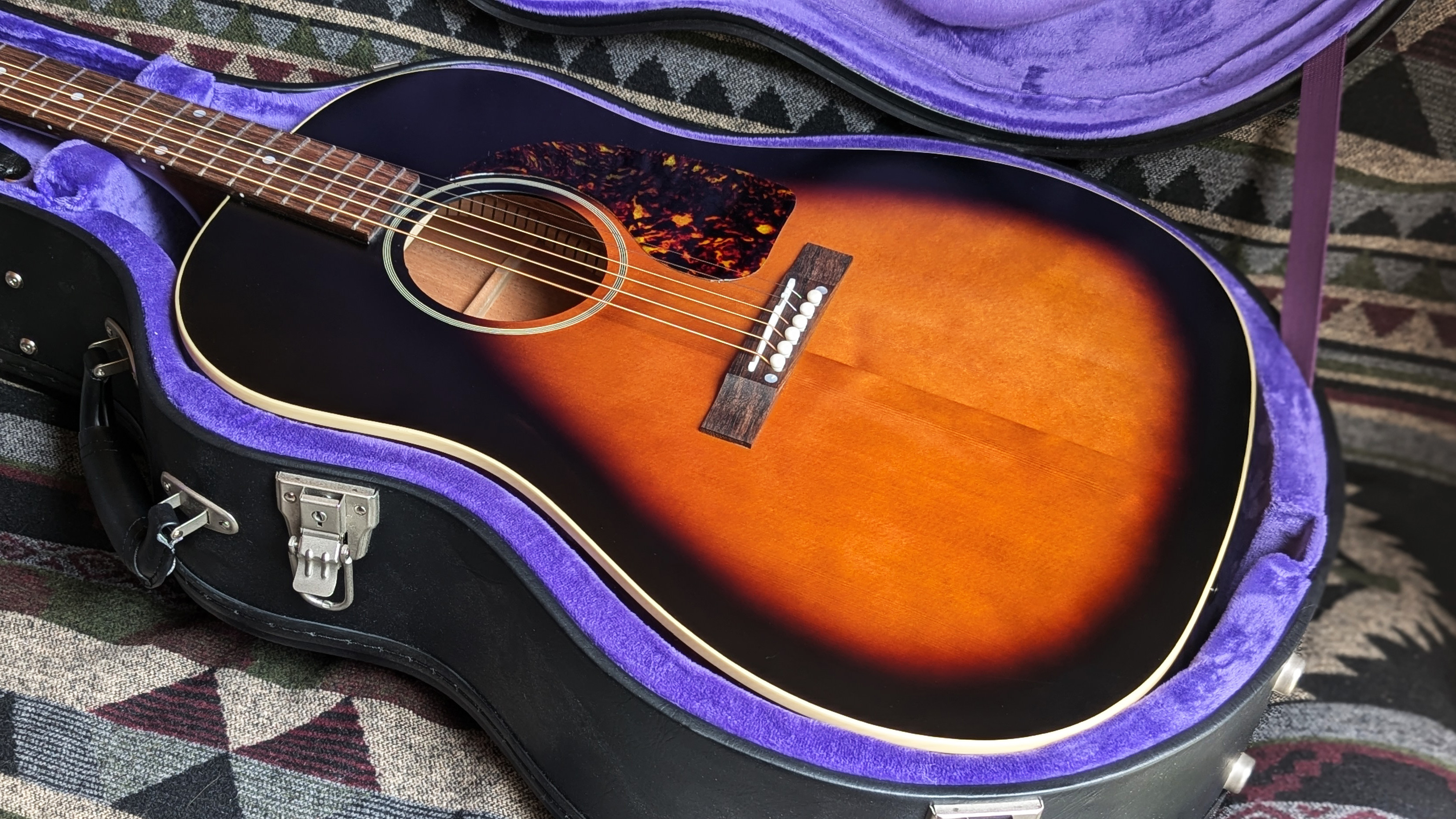
One of the Custom Shop-inspired touches here is the Vintage Original Sheen (VOS), an alternative to the higher gloss of the Gibson J-45 standard offering without alienating those turned off by relic’ing and satin finishes. While the Vintage Sunburst here isn’t rendered vivid or deep as the Gibson gloss, it does give this J-45 an attractive workhorse look. It’s disappointing then to find a flaw Epiphone QC seems to have missed.
Above the soundhole a small patch of black endging on the sunburst has been missed, allowing the finish underneath to show through. It’s less apparent in softer light but we don't appreciate seeing it on a $1,300 acoustic guitar at all.
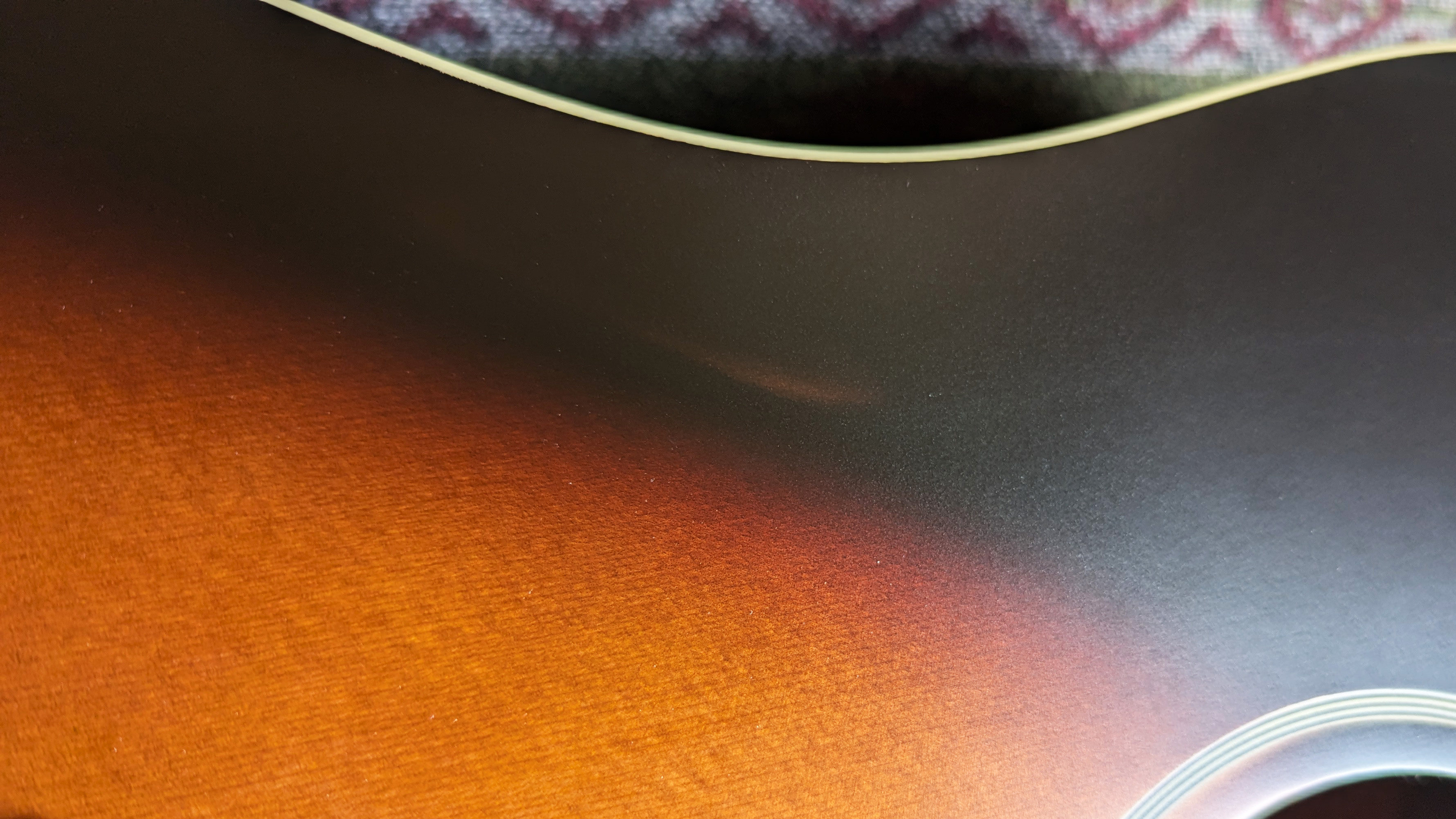
The VOS finish on the back of the neck is definitely easier for palm transitions than full gloss, feeling more played in, while the traditional J-45 V -shape neck here feels a little slimmer than I expected – in a good way. Personally I'd prefer the slinkier feel of an .011 gauge set of strings rather than the 0.12 this ships with but that's just my preference.
The fingerboard wood here is laurel, and for me this highlights one of the challenges Epiphone face when it comes to defining its more premium import models from the Gibson line. Laurel is also used on Epiphone’s more affordable models – including the $299 J-45 Studio, but the company obviously has to draw a line on cost and spec somewhere.
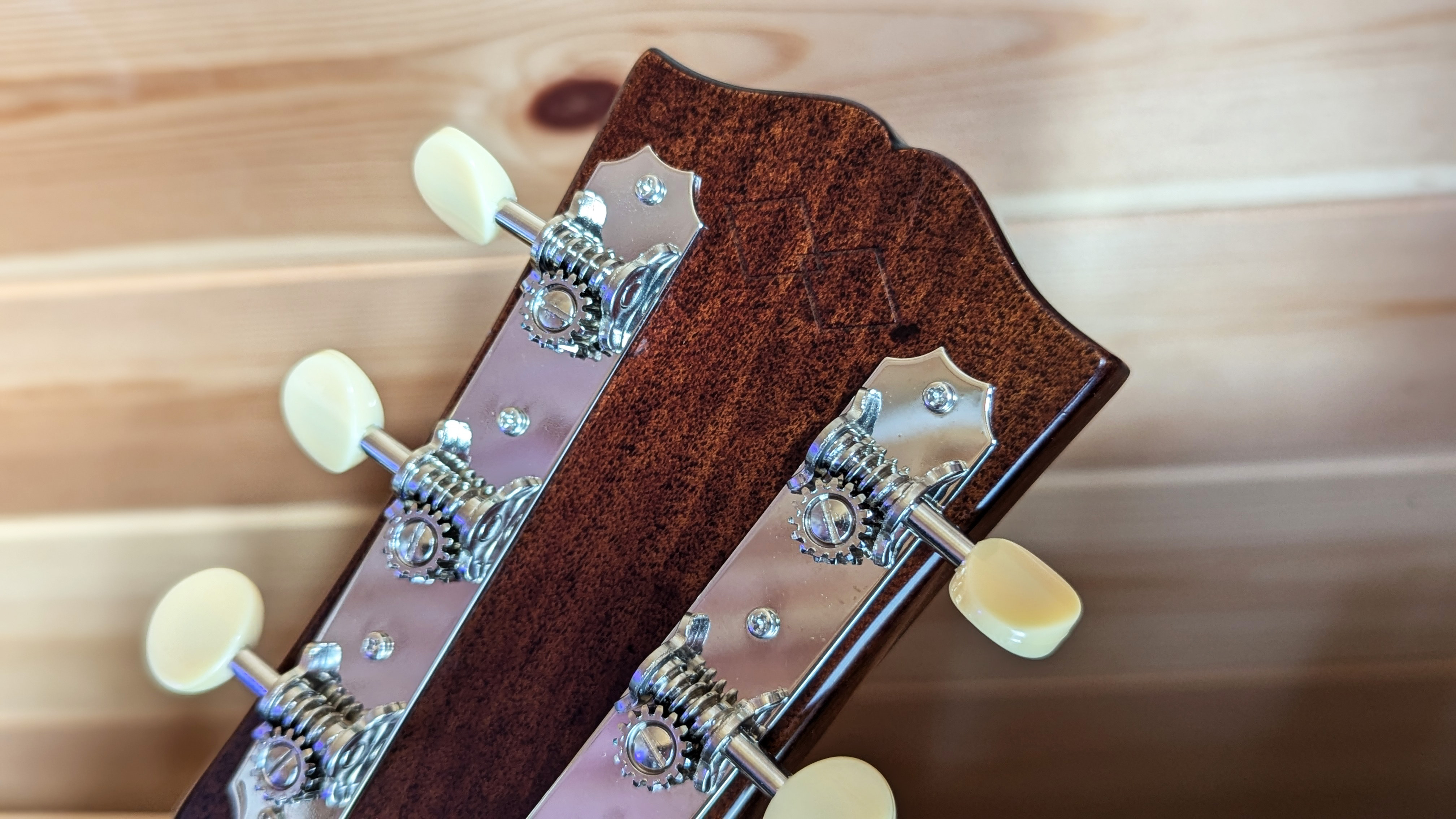
Elsewhere Gibson Banner touches can be found with thermally aged Sitka spruce (the Gibson’s is the Adirondack variety), scalloped X-bracing, bone nut and saddle, plus open-back cream button tuners.
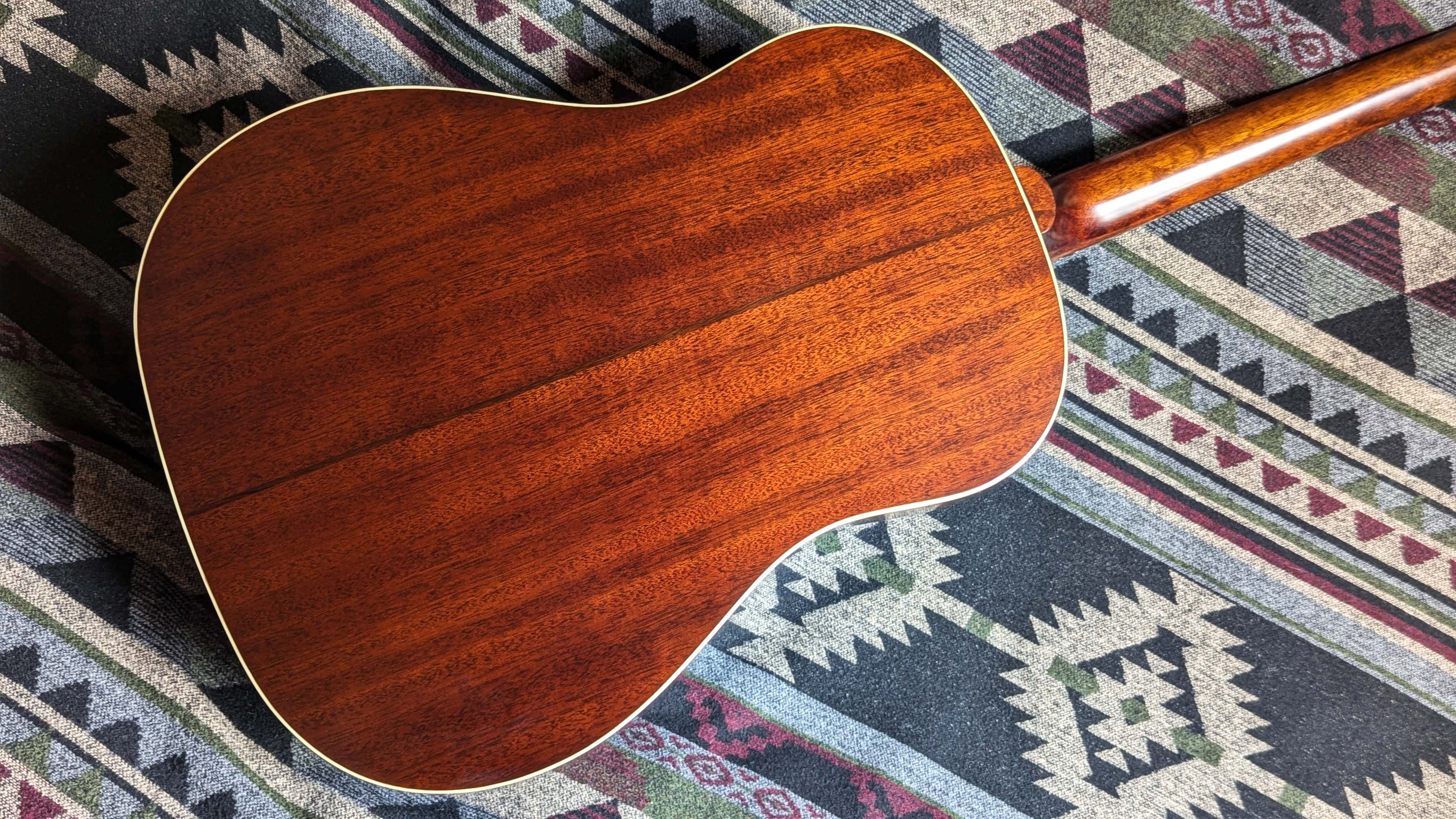
Those clear mids and the defined ringing high-end are there, and provide a natural, inspiring accompaniment for a singer
The thermal aging process here is also known as torrefaction; removing moisture from the spruce to mirror some of the aging process that would usually take years of ownership and play. This is said to enhance tone that helps make some vintage acoustics so desirable. While it’s difficult to ascertain the specific impact of the thermally aged top here what I can say is there are attractive hallmarks of the classic Gibson J-45 sound here.
Those clear mids and the defined ringing high-end are there, and provide a natural, inspiring accompaniment for a singer. No wonder all those legends loved it.
The bass is less resonant and deep here than Gibson J-45s I’ve encountered but the balance of this guitar’s sound for strumming is undeniable. And I know, the B word gets thrown around a lot but there’s something very reassuring and classic about digging into rhythm with this guitar.
There’s a natural compression that’s ideal for recording with a condenser mic or two, but it’s great to see a feature from the Gibson Standard model here that opens up the potential for live use too.
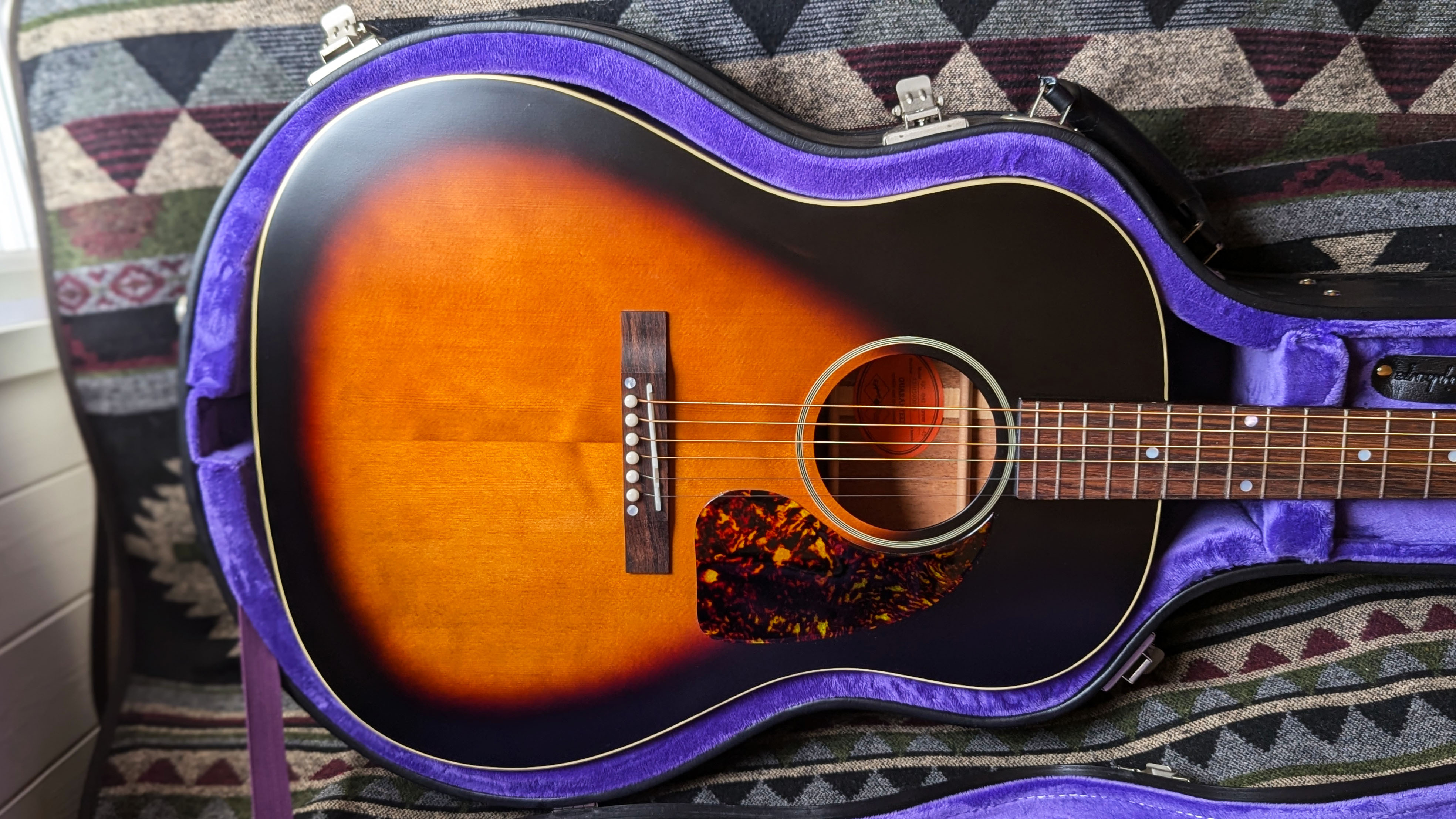
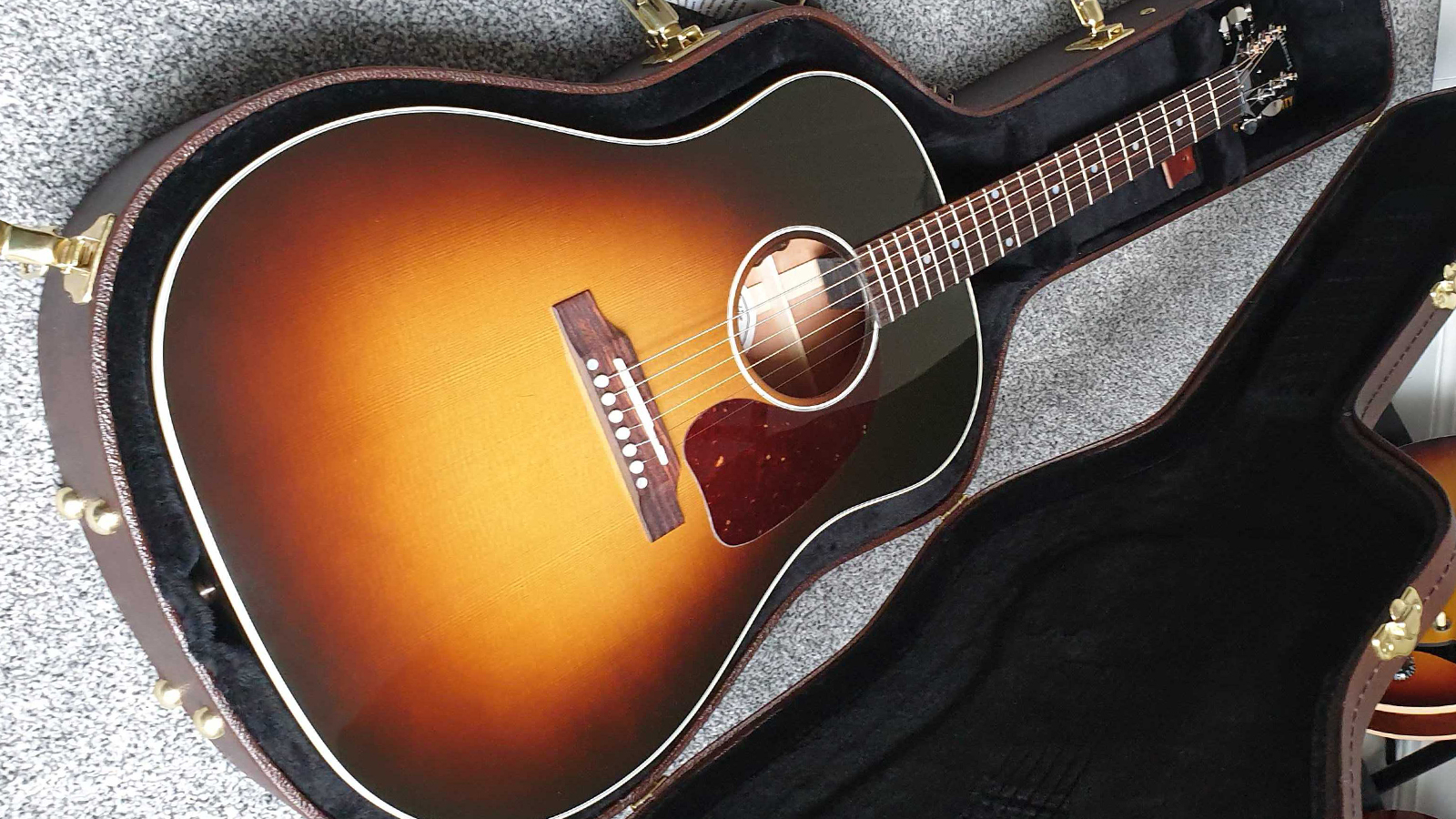
Epiphone hasn’t treated the onboard preamp and piezo as an afterthought bonus; it’s an active Baggs VTC Element like the J-45 Standard, a system I’ve been consistently impressed with and one of the most dynamic-sounding (no quack here, thank you) undersaddle piezo pickups around.
The volume and tone controls are hidden inside the soundhole to keep the electronics from undermining the heritage looks. The sound is especially warm for a piezo through the Fishman acoustic combo I’m testing with and captures the little inflections in chord voicings and subtle hammer-ons that the J-45 is often so adept at reflecting clearly.
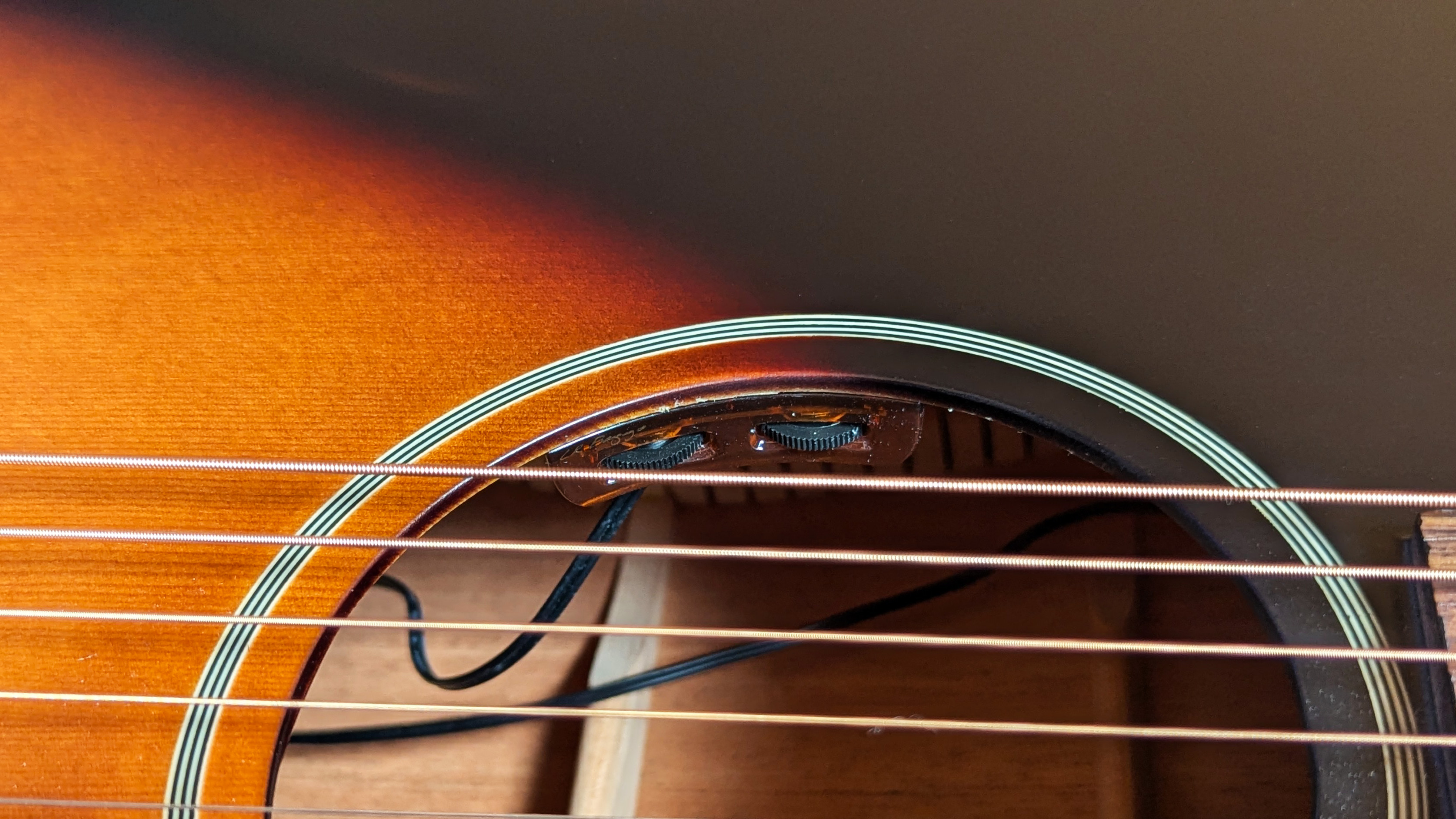
The electronics are just as important as the Custon Shop-inspired appointments in making this another option for buyers who are weighing up what they want, need and can afford from the J-45 expanded line that now exists across Gibson and Epiphone. Placed above the Inspired By Gibson J-45 with its Fishman Sonicore electronics, it offers a step up but it’s not quite a leapfrog into the full J-45 experience that Gibson can offer.
MuscRadar verdict: An electro-acoustic that sits between existing Epiphone takes on the iconic J-45 and Gibson’s Standard and Custom Shop models, this could be a Goldilocks guitar for some buyers priced out of the latter.
Epiphone 1942 Banner J-45: Hands-on demos
Acoustic Letter
Gibson
Epiphone 1942 Banner J-45: Specifications
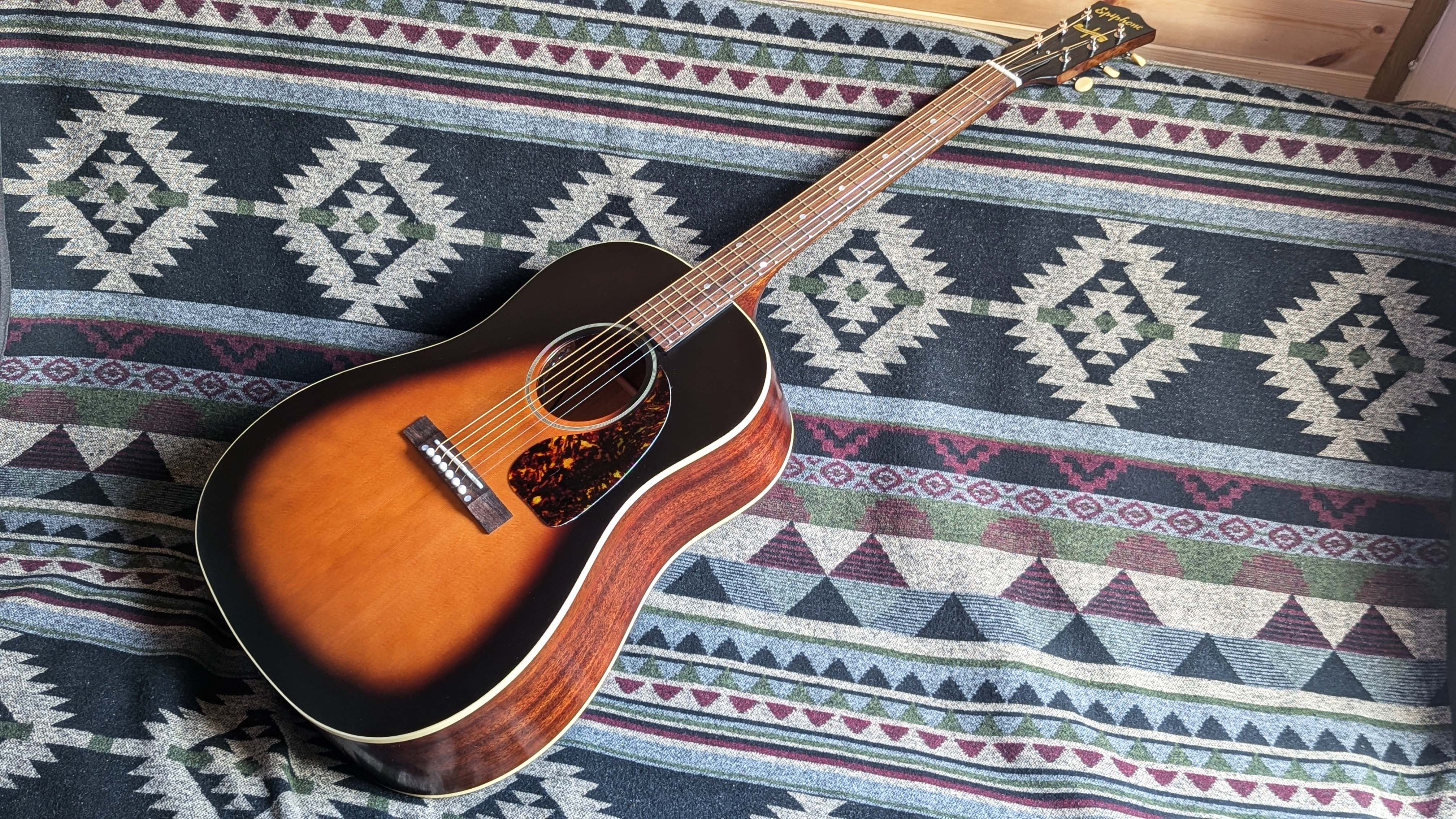
- ORIGIN: China
- TYPE: Round shoulder jumbo electro-acoustic
- TOP: Torrefied solid Skitka spruce spruce
- BACK/SIDES: Solid mahogany, single-ply binding to top and back
- BRACING: Scalloped X
- NECK: One-piece mahogany, V
- SCALE LENGTH: 628.65 mm (24.75”)
- TUNER: Three on a plate, open back with cream buttons
- NUT/WIDTH: Bone / 44mm
- FINGERBOARD: Laurel with Mother Of Pearl dot inlays
- FRETS: 19, Standard
- BRIDGE: Laurel rectangle, bone pins
- ELECTRICS: LR Baggs VTC Element
- WEIGHT (kg/lb): 2.17/4.8
- LEFT-HANDERS: No
- CASE: Hardshell with Inspired By Gibson Custom Logo
- FINISH: Vintage Sunburst VOS (Vintage Original Sheen) Polyurethane
- CONTACT: Epiphone

Rob is the Reviews Editor for GuitarWorld.com and MusicRadar guitars, so spends most of his waking hours (and beyond) thinking about and trying the latest gear while making sure our reviews team is giving you thorough and honest tests of it. He's worked for guitar mags and sites as a writer and editor for nearly 20 years but still winces at the thought of restringing anything with a Floyd Rose.
“Every note counts and fits perfectly”: Kirk Hammett names his best Metallica solo – and no, it’s not One or Master Of Puppets
Ranked: Bon Iver's albums, from Sable, Fable to For Emma, Forever Ago
“Its mission is simple: unleash the power of any amplifier or line-level source without compromise”: Two Notes promises a “watershed” in tube amp control with the Torpedo Reload II
